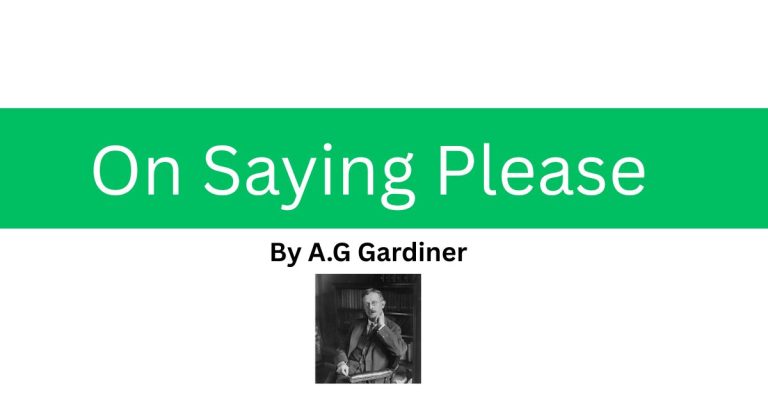The Verger tells the story of Albert Edward Foreman, a dedicated and hardworking man who has worked as the verger of Saint Peter’s Church near Neville Square for 16 years. Albert takes great pride in his job and carefully looks after his uniform and the duties he performs. Over the years, he has collected many “goans” (a type of reward or token) from his service and keeps them safely in the bottom drawer of his wardrobe.
One afternoon, during a christening, the church is busy with the usual activities. A new vicar, who has recently taken over at the church, arrives. He is a middle-aged man in his forties, who is very particular about how things are done. Albert does not like the new vicar, as he often disturbs people when they’re trying to work. Albert has always done his job with honesty and dedication, and the previous vicars had never complained about him.
After the christening, the vicar asks Albert to come inside the church for a talk. Albert, unsure of what the vicar wants, follows him. As they walk, Albert compliments the vicar on his ability to calm a child during the service. The vicar seems pleased and talks about how he can calm any child, showing his sense of pride in his skills.
When they enter the church, Albert is surprised to see two other church wardens sitting with the vicar. The vicar then says something that shocks Albert: he has learned that Albert cannot read or write, and he wonders how Albert manages the paperwork for the church. Albert is taken aback because, after 16 years, no one had ever raised this issue before. He explains that everyone knows he can’t read or write, but no one had ever complained about it.
The vicar tells Albert that things must change. He gives Albert three months to learn to read and write, or he will be fired from his job. Albert is deeply upset and tells the vicar that learning these skills in just three months is impossible for him. He suggests that the church should hire someone else for the job and that he will resign.
Albert, a kind and patient man, is saddened by the situation, but he does not get angry. After leaving the meeting, he decides to smoke a cigarette to calm his thoughts. He walks home, thinking about what to do next. He is surprised to find that there are no tobacco shops on the street he passes through, which gives him an idea.
Albert decides that he will leave his job as the verger after one month and open a tobacco shop on that street. He follows through on his plan, and the tobacco shop is a success. Within a year, he opens another shop, and his business continues to grow. Albert starts expanding slowly, opening more shops on streets where there were none before. He earns much more money than he ever did as a verger.
One day, Albert goes to the bank to deposit his earnings. The bank manager asks him to invest his money in the bank. He gives Albert some documents to read and sign. Albert, who cannot read, hesitates but refuses to sign the papers. The bank manager is impressed by Albert’s success despite not being able to read or write. He tells Albert that if he had been educated, he would have been even more successful. Albert replies, “If I were educated, I would still be working in the church.”




